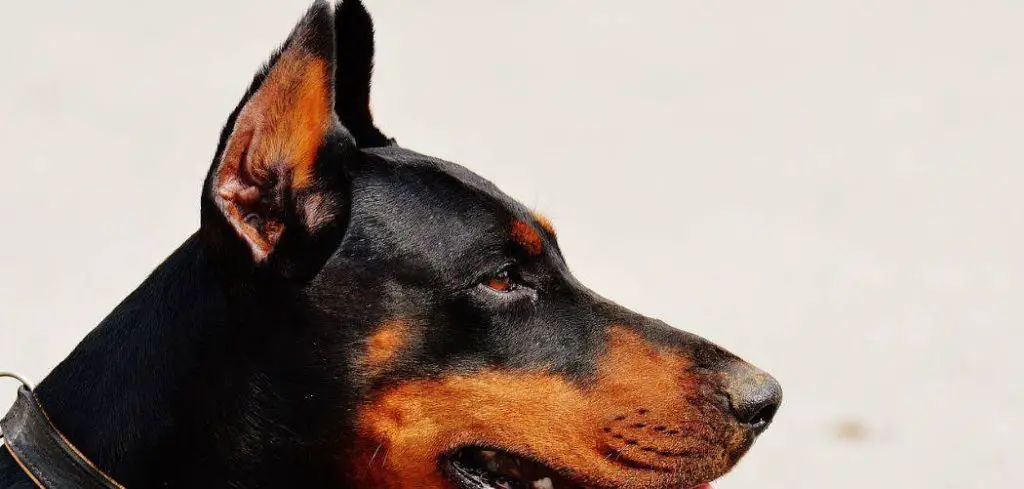It can be distressing to see your dog panting hard while constantly licking floors, walls, or even themselves. These two behaviors together often indicate more than just being hot or anxious.
We outline the common causes of a dog panting and licking excessively, what you can do at home, and when to seek veterinary help.
Dog Panting and Licking Excessively — Why It Happens
When a dog is both panting and licking excessively, it usually signals stress, discomfort, nausea, or an underlying health issue. These behaviors might stem from digestive upset, anxiety, pain, or even a neurological condition. While occasional panting or licking might be normal, especially after activity or during warm weather, ongoing or intense episodes are a red flag.

Common Causes of Dog Panting and Licking Excessively
Nausea or Gastrointestinal Upset
Nausea is one of the most common reasons dogs lick excessively, especially surfaces or their lips.
The excessive licking may be an instinctual attempt to soothe a queasy stomach, and panting can occur alongside if your dog feels distressed.
Dogs with nausea might also drool, eat grass, or vomit. Conditions like acid reflux, dietary indiscretion, or even pancreatitis can cause these symptoms.
This combination warrants attention, especially if it recurs or is paired with vomiting or lack of appetite.
Anxiety or Stress
Panting and licking are classic signs of a dog in distress or experiencing anxiety.
Separation anxiety, fear during storms, new environments, or unfamiliar guests can all trigger this response.
The licking might be directed toward themselves, objects, or surfaces as a self-soothing behavior.
Panting due to anxiety is usually more shallow and rapid, often accompanied by pacing or whining.
If your dog seems more anxious than usual, take note of changes in their routine or environment.
Read more: Dog Panting Excessively (Here’s why)
Pain or Discomfort
Dogs experiencing internal pain, such as from arthritis, dental disease, or injury, may pant and lick as coping mechanisms.
Licking a specific area repeatedly may indicate pain there, while generalized licking can be a sign of internal discomfort.
Panting due to pain is often more pronounced at rest or at night and may come with changes in posture, decreased movement, or avoidance of touch.
If your dog is licking one area consistently or showing other signs of discomfort, a veterinary evaluation is important.
Neurological Disorders
Some neurological conditions, including focal seizures or compulsive behavior disorders, can present as excessive licking and panting.
These behaviors may appear suddenly, persist for several minutes, and seem unrelated to external triggers.
Panting might be a result of post-seizure confusion, while licking may be part of the seizure activity itself.
If the behaviors are frequent, intense, or seem trance-like, this possibility should be investigated.
Heatstroke or Overheating
Excessive panting can point to overheating, especially in warm weather or after exercise.
Some dogs might lick the floor or water bowl obsessively as they try to hydrate or cool off.
Flat-faced breeds, seniors, and overweight dogs are especially prone to overheating.
This situation can escalate quickly and is a medical emergency. Look for additional signs like bright red gums, weakness, or vomiting.
Cognitive Dysfunction (Senior Dogs)
Older dogs experiencing canine cognitive dysfunction may pant and lick excessively without clear cause.
Disorientation, pacing, nighttime restlessness, and changes in interaction are other potential signs.
This condition is similar to dementia in humans and results in anxiety-like symptoms.
If your senior dog is showing new or escalating behaviors, this could be the root cause.
What to Do If Your Dog Is Panting and Licking Excessively
First, observe the context and frequency. Was your dog recently active? Could they be feeling anxious or nauseous? Remove any immediate stressors or sources of overheating.
Provide a cool, calm environment and ensure your dog has access to fresh water. If licking appears to be related to nausea, you can try withholding food briefly or offering a bland diet like boiled chicken and rice. Avoid punishment — these behaviors usually signal distress, not disobedience.
If your dog has a history of anxiety, consider calming techniques like pressure wraps, calming pheromone sprays, or prescribed medications from your vet.
Keep track of when the behavior happens, how long it lasts, and any other changes. This information will help your vet determine the cause.
When to Call or Visit Your Vet
If your dog is panting and licking excessively for more than a few minutes without obvious cause, call your vet.
Seek immediate help if:
Your dog is also vomiting, shaking, or appears lethargic.
They collapse, struggle to walk, or seem disoriented.
Gums are pale, bright red, or blue-tinted.
They have a history of seizures or neurological conditions.
The behaviors are sudden and severe.
Prompt veterinary care is essential to diagnose the underlying issue and start appropriate treatment. Early action can prevent complications and ease your dog’s discomfort.
Read more: Dog Panting Heavily After Exercise (Here’s why)
Key Takeaway
Panting and licking are often your dog’s way of expressing that something’s not right.
Whether it’s nausea, stress, pain, or something more serious, these behaviors deserve careful attention.
Monitor the symptoms, keep your dog comfortable, and don’t hesitate to reach out to your veterinarian.
You know your dog best — trust your instincts when something feels off.
